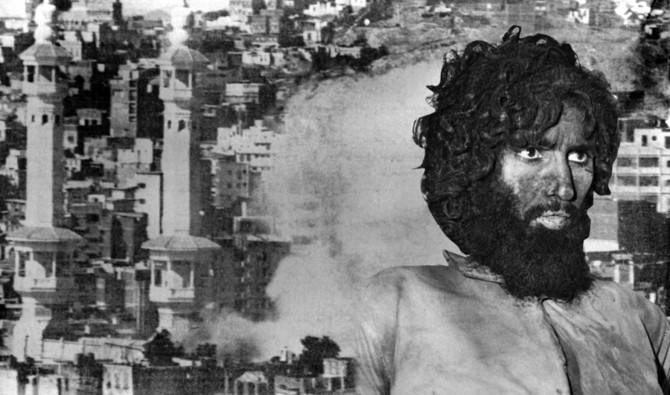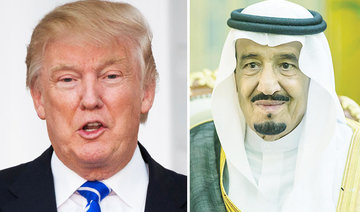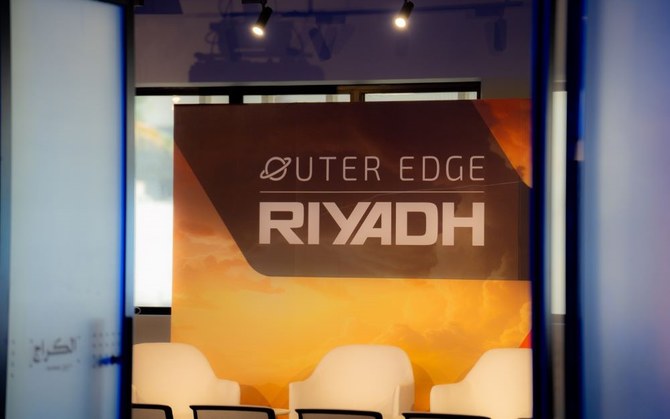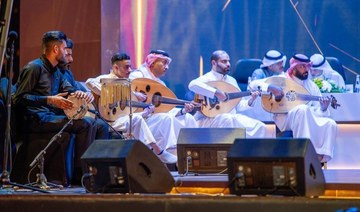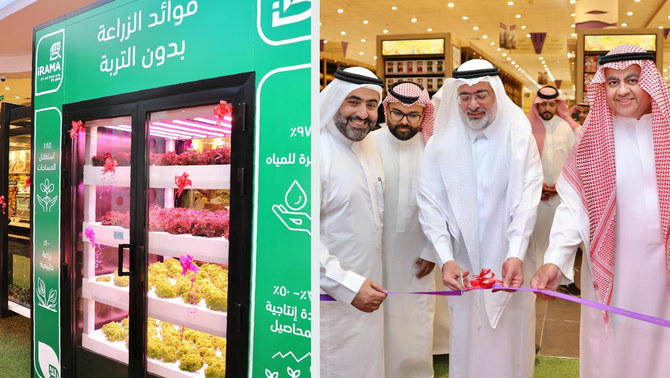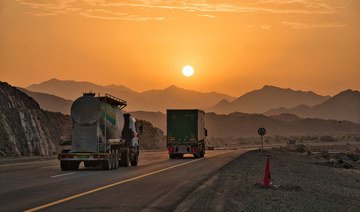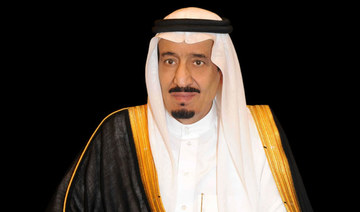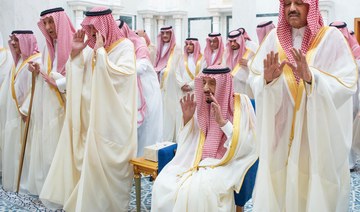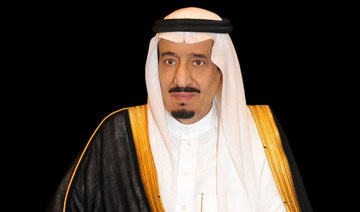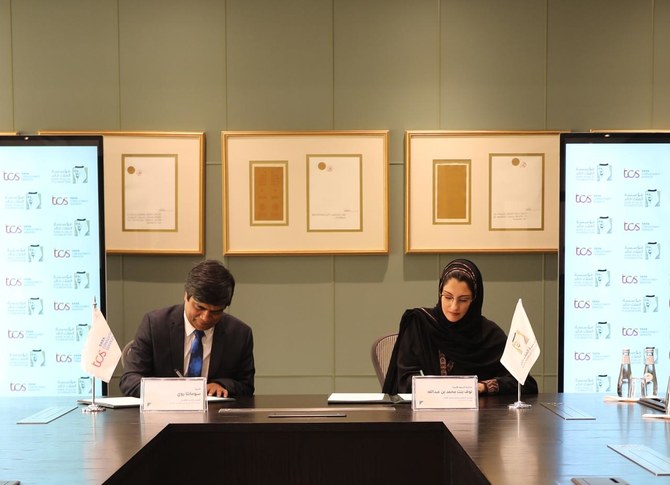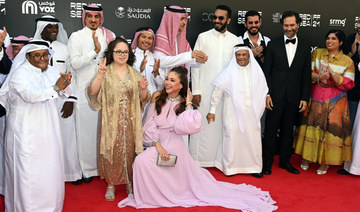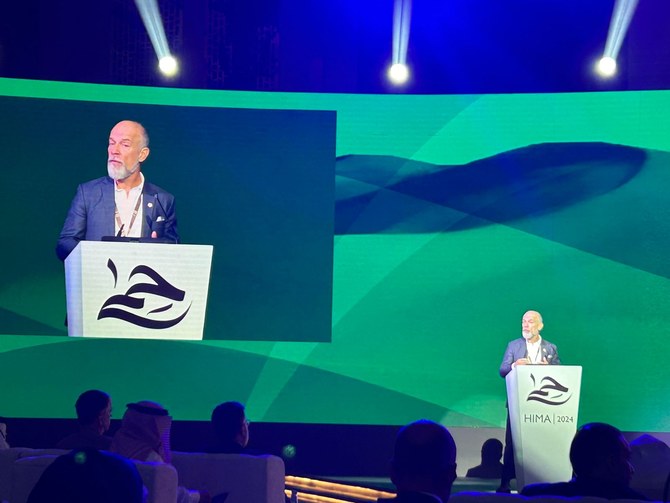It has been 40 years since Saudi Arabia first experienced a terror attack, which shocked all Muslims worldwide. It took place at their most sacred place where the Kaaba has been located for centuries. The rise of extremism in the Kingdom began on Muharram 1, 1400 — corresponding to Nov. 20, 1979 — when a deviant group stormed the Holy Mosque of Makkah. The incident, which lasted two weeks, claimed the lives of more than 100 people.
It was the 1st of Muharram, the first month of the Islamic calendar. Hundreds of worshippers were circling the Holy Kaaba, in spirituality and peace, performing the dawn prayer. It was nearly 5:25 a.m. All of a sudden, the attendants started to hear sounds of bullets that turned the most peaceful place into a stage for killers, who targeted ordinary, innocent people and rescuers.
Crown Prince Mohammed bin Salman has said that extremism started after 1979. He has pledged a return to a moderate past.
“We are returning to what we were before — a country of moderate Islam that is open to all religions and to the world,” he told the Future Investment Initiative conference in Riyadh last year.
“We will not spend the next 30 years of our lives dealing with destructive ideas. We will destroy them today,” he added.
The Saudi authorities had to either immediately crush the aggressors or call on them to lay down their arms. The government sent the attackers a warning through a megaphone stressing that what the deviant group inside the Holy Mosque was doing was in complete contradiction to the teachings of Islam. The warning, in the name of government of the late King Khaled, also included the following Qur’anic verse to remind the attackers of their heinous acts: “Whoever intends a deviant deed at the Holy Mosque, in religion, or wrongdoing, We will make him taste a painful punishment,” and “Do they not then see that We have made a sanctuary secure, and that men are being snatched away from all around them? Then, do they believe in that which is vain, and reject the Grace of Allah?”
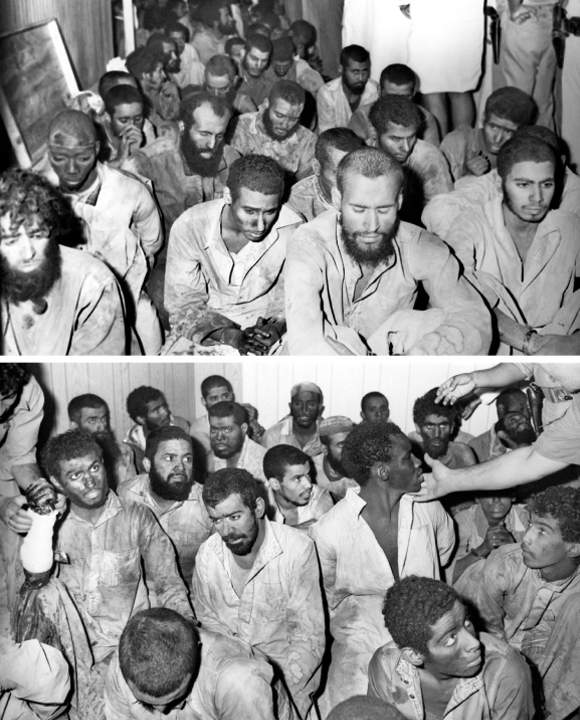
117 members of the deviant group led by Juhayman Al-Otaibi were killed in the encounter, 69 others were executed less than a month later, and 19 received jail sentences.
However, all calls on the attackers to surrender were fruitless. From the high minarets of the sacred mosque, snipers started gunning down innocent people outside the Grand Mosque.
King Khaled gathered the country’s senior ulema (scholars) to discuss the matter with them. They all agreed that the aggressors were, from an Islamic point of view, considered apostates, as a Muslim never kills innocent people. Doing that inside the holy mosque was even more atrocious. The ulema issued a fatwa (religious edict) to kill them in accordance with the instructions of the Islamic Shariah. The king ordered an assault. However, he said the lives of the innocent people seized by the attackers should be preserved. He also demanded that the Holy Kaaba and the soldiers be unharmed. And he directed the forces to arrest the offenders alive if possible.
Filled with enthusiasm to liberate their sacred mosque, the Saudi soldiers received the orders to free it from the criminals’ control. The attack to free the mosque began with the Saudi soldiers showing skills in hunting the offenders according to a well-studied plan until they succeeded in taking control of the whole mosque.
When captured, the members of the group were treated mercifully and gently. In this regard, the former head of the Special Security Forces, Maj. Gen. Mohammed Al-Nufaie, told a satellite TV channel that when the mastermind of the attack, Juhayman Al-Otaibi, was caught, a security member grabbed him by his beard. “When a royal saw that, he angrily ordered the soldier to remove his hand from the man’s beard,” Al-Nufaie remembered.
Al-Nufaie said Prince Saud Al-Faisal approached Juhayman and asked him why he had committed these acts. “Juhayman replied: ‘It was Satan.’ The prince also humanely asked him if he was complaining about anything or if he wanted anything. Juhayman pointed to a little wound on his leg and asked for water,” the retired major-general, who was present, said.
Al-Nufaie added that they were all very happy with the liberation of the Grand Mosque: “It was a true rejoicing after a two-week period of professional work. We were thrilled to bring the atmosphere of the mosque back to its normal serenity and tranquility.”
A witness, Hizam Al-Mastouri, 75, told Arab News that he was a soldier who participated in the operation against the attackers.
“We entered the Grand Mosque in a military vehicle to transport our colleagues inside the Masa’a area, near the Mount Al-Marwa. The shooting was extensive, coming from everywhere toward us,” he said.
He added that the companions of Juhayman were hiding in the many corners of the Masa’a. “They could see us, while we were not able to see them. With time, the security leadership made changes in their plans in a way that suited the situation,” Al-Mastouri said.

The former Editor in Chief of Arab News, Khaled Almaeena, pointed out that it was a cool morning and he had gone to Makkah to visit a cousin when he was told there was a disturbance around the Grand Mosque. “I did not pay any attention at that time because what I came to know later was unimaginable,” he said.
Crowds of people had gathered and there was a lot of commotion. “Rumors were flying of the Holy Kaaba being seized by ‘foreigners’. Some were telling different stories. I came back to Jeddah and watched the Saudi Television channel, the only one we could see in those days,” he said.
“I was working in Saudia (Saudi Arabian Airlines) but in the evening would go to work part-time at the English station of Radio Jeddah. Even there, reports were sketchy. We had to use the transistor radio to get news from outside stations like the BBC, VOA and Monte Carlo.”
He added that he decided to see for himself and “on the fourth, fifth and sixth morning I would go in my car and off to Makkah. I parked my car at a distance and observed the Holy Mosque,” he said.
“It was a sad sight to see the holiest place in Islam empty. There were no visitors streaming toward the gates. In fact, there was firing from the minarets and I could see the puff of smoke from the different minarets. There was a smell of gunpowder and smoke.”
Almaeena said that an occasional helicopter would hover high in the sky, keeping far away from the perimeter of the Grand Mosque. “The attack and seizure of the mosque took everyone by surprise. And it took time for all of us, including the security forces, to take stock of what was truly an alarming situation,” he said.
Days passed and no calls for prayers were heard, he continued. “However, after days this band of zealots was overpowered and their leader Juhayman Al-Otaibi was captured. Around the world, there was more satisfaction in the Muslim world,” he said.
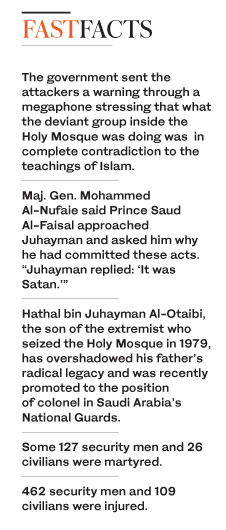 The veteran journalist said he had to report on the incident for the radio, which he did by recording on an old tape recorder and then broadcasting it from Jeddah.
The veteran journalist said he had to report on the incident for the radio, which he did by recording on an old tape recorder and then broadcasting it from Jeddah.
“The capture of the zealots and their leaders was filmed and we had to broadcast it ‘live.’ The available technology did not help. Three people were entrusted with the task. The late Badr Kurayem, one of Saudi Arabia’s leading radio and television broadcasters; Dr. Hashem Abdo Hashem, who later became editor in chief of Okaz; and myself,” he said.
“So here was Dr. Abdo writing the script in his long, flowing handwriting, Badr Kurayem reading the Arabic script and me doing an impromptu live translation, struggling with some of the adjectives that Dr. Abdo was using.” He noted that it was not an easy task but they were able to do it. “Those were dark days but luckily the siege ended,” he added.
Almaeena said that although there was no social media or instant reporting and journalism was a slow process in those days, the coverage by the Saudi press was professional.
Another prominent journalist, Mohammed Al-Nawsani, said that he was the first media personality to circle the Kaaba after the offenders were arrested.
“You can’t imagine how difficult those days were, as the Kaaba is Qibla of all Muslims. Much though I was shocked to know that the Grand Mosque was captured, I was even much more overjoyed and proud of our security men and their professionalism in dealing with the incident,” he said.
Like father is not like son
Hathal bin Juhayman Al-Otaibi, the son of the extremist who seized the Holy Mosque in 1979, has overshadowed his father’s radical legacy and was recently promoted to the position of colonel in Saudi Arabia’s National Guards. Hathal was only one year old when his father attacked the Grand Mosque.
Many Saudis on social media described the news of the promotion as an example of “fairness” by Saudi Arabia. They lauded the fact that the son of someone who initiated extremism in the country has now become an integral part of the security apparatus.



